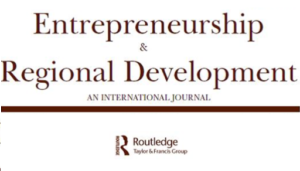Episode 88 – Deema Refai – John Lever – Radi Haloub – Entrepreneurship in constrained immigration contexts – the liminal integration of Syrian refugees
Drawing on a qualitative study of Syrian refugees in constrained immigration contexts in the North of England, this article explores refugees’ perceptions of integration and social exclusion through entrepreneurship. By exploring refugee experiences as they engage in entrepreneurship programmes or business start-ups, our findings highlight a divide among refugees with the means to start-up businesses…
Read More
